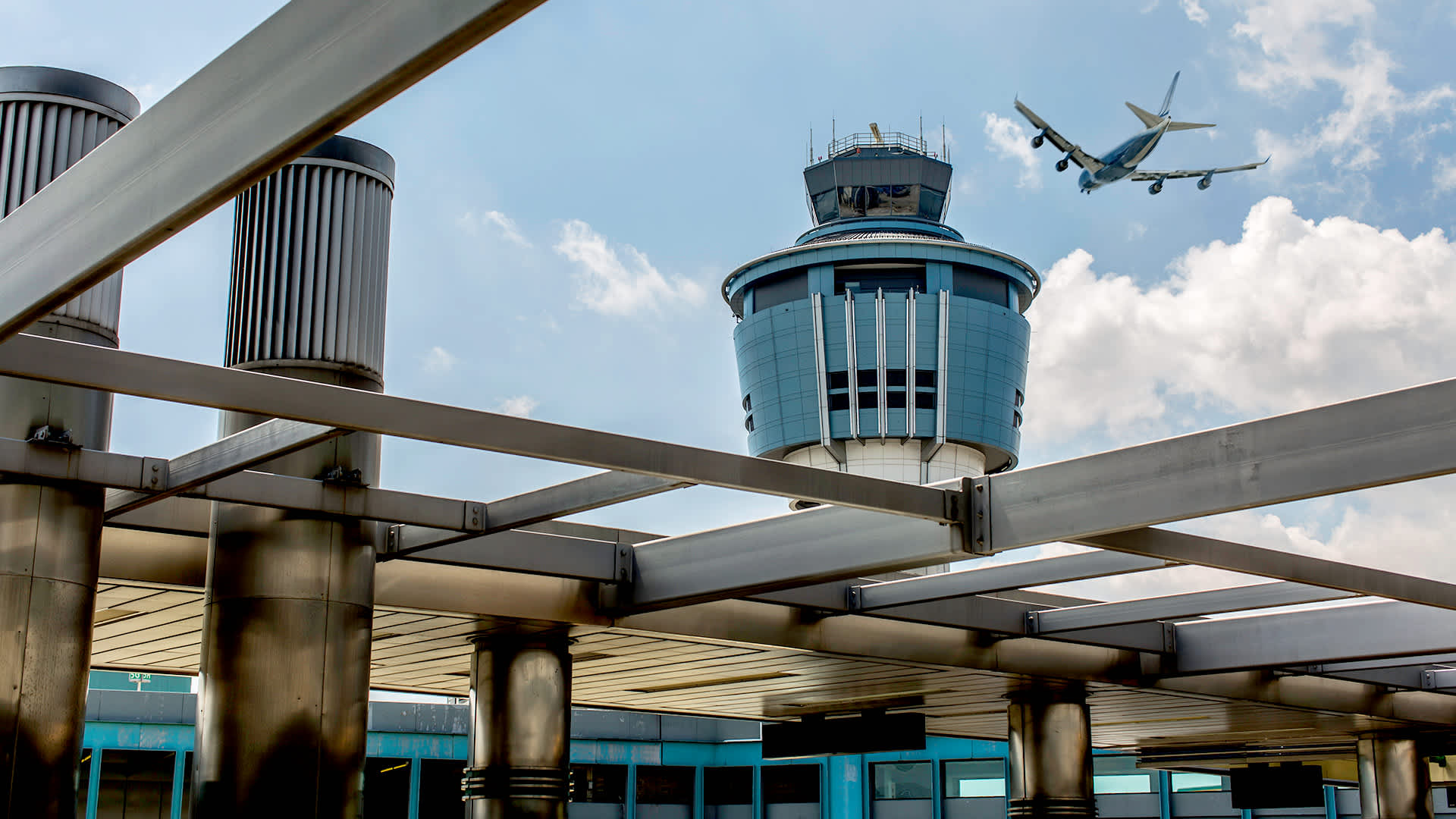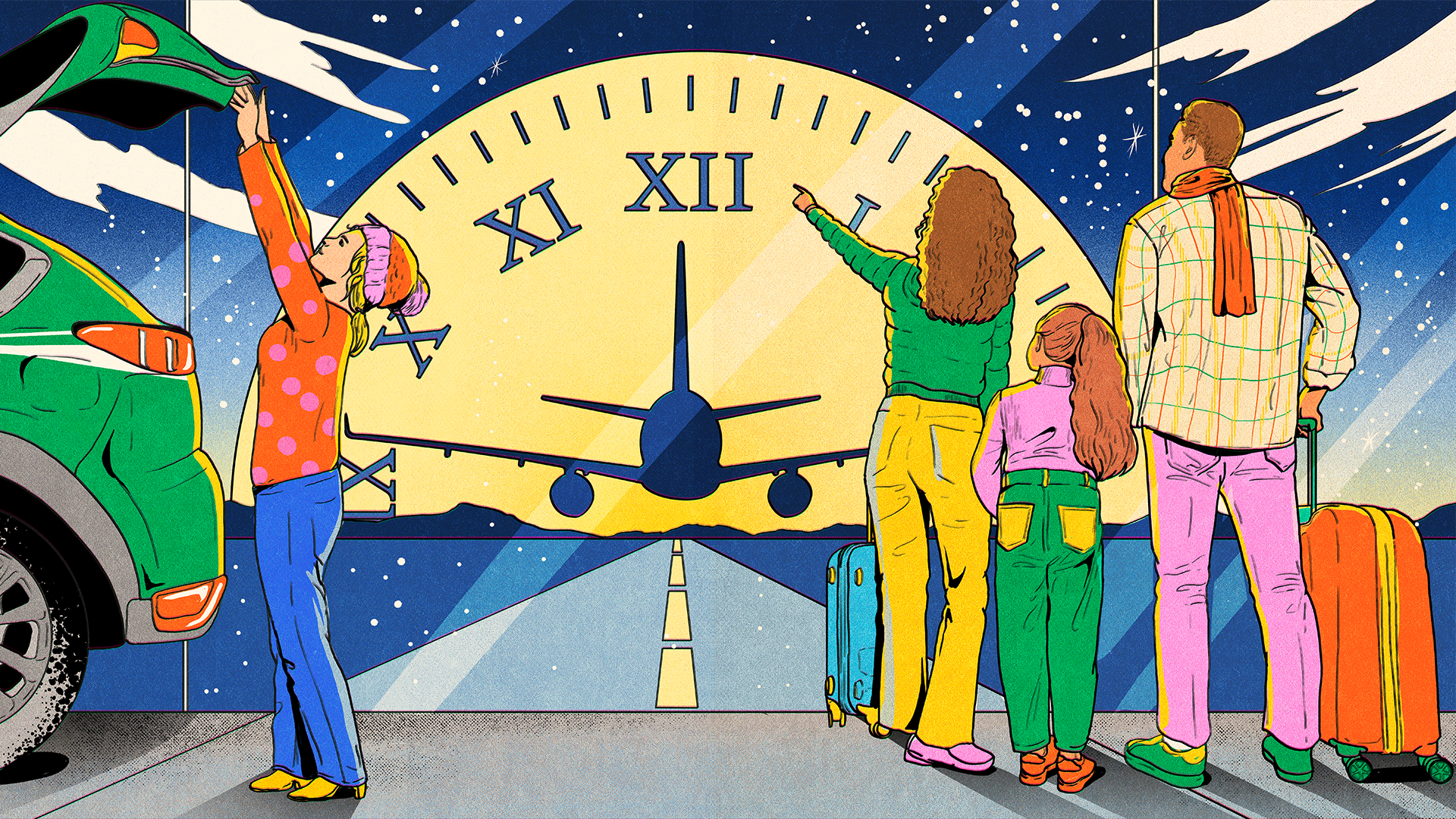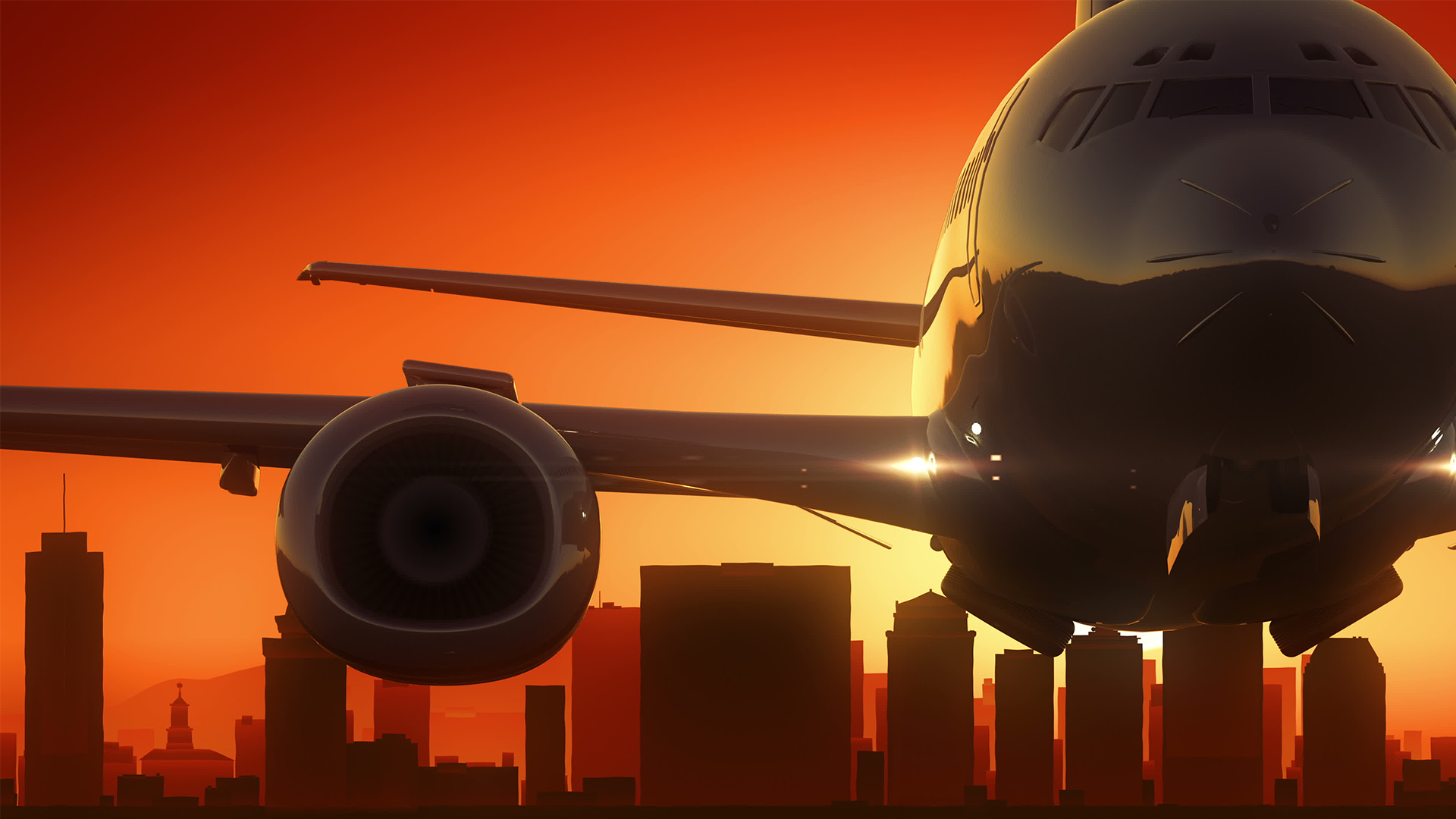
The holidays are approaching — and with them, some of the busiest days for airport travel. Indeed, over the past three years, Lyft riders have taken 10% more rides to and from airports in the month of November. And, in June 2024, air travel was up 7% from June 2023; if the trend continues, it will be another busy season for airlines ahead.
As any seasoned traveler knows, airports are not created equal — and they can make the difference between a seamless journey and a harrowing one. So, to help you prepare for any travel ahead, we used Lyft data and public data to score the 30 largest airports in the U.S. on 12 measures across four dimensions: convenience, affordability, efficiency, and amenities. Then we combined those scores to find out which U.S. airport soars above the rest. (See our methodology section for more details.)
Most convenient: Austin-Bergstrom International Airport (AUS)
Each air journey begins and ends with a ride to and from the airport — and it’s not always easy. Because airports require a lot of land area, they tend to be located on the outskirts of cities, where they are less connected to public transportation and more vulnerable to traffic. Here are the easiest airports to get to.
Time by car: On average, passengers spend 26 minutes in a Lyft ride to or from an airport. However, travel to or from Las Vegas’s Harry Reid International Airport (LAS), located just three miles from the Strip, takes just 16 minutes, on average.
Time by public transit: For those relying on public transit, the airport commute tends to be more of an ordeal, taking 41 minutes on average to reach the city center. But not so in Boston –– the airport (BOS) offers subway, commuter rail, and bus services, the shortest of which takes about 20 minutes to reach downtown.
Average wait for pickup (minutes): On average, customers wait for a rideshare pickup for nine minutes across all airports. However, New York’s LaGuardia Airport (LGA), where recent renovations were designed with rideshare in mind, has reduced that time to six minutes.
Averaging across all three of these standardized measures, the airports of Austin (AUS), Salt Lake City (SLC), and Boston (BOS) all come out on top as the easiest to get to and from.

Most affordable: Salt Lake City International Airport (SLC)
Flying is pricey — and extra expenses at the airport can make it even more so. Here are the top airports, based on affordability.
Parking cost: While the average large U.S. airport charges $60 to leave your car for a long weekend, parking is a steal at Houston’s IAH ($27) but also in Texas generally: Parking at both DFW (Dallas Fort Worth) and AUS (Austin) costs under $40.
Cost of a Lyft ride to/from the airport: Rideshare can offer a more dependable, more convenient, and cheaper option than driving yourself (especially if you schedule your ride in advance). A Lyft ride to the airport costs $39 on average — and under $22 in LAS (Las Vegas).
Cost of Chex Mix: There’s no shortage of complaints about overpriced airport food, but someone finally decided to try to quantify it. An X user crowdsourced the price of an 8.75-ounce bag of Original Chex Mix at airports across the country. The results are not the most rigorous — some commenters found different prices in the same airport — but still provide a useful rough guide. While the average cost in our subset of large airports is $8 (twice more than normal), Chex Mix costs a whopping $14 at SEA (Seattle). Meanwhile, SLC (Salt Lake City) and MSP (Minneapolis) seemed to keep prices at more reasonable levels, under $4.
Taking all these measures into consideration (underweighting the Chex Mix), the cheapest airport is SLC in Salt Lake City, followed by CLT in Charlotte and AUS in Austin.

Most efficient: Detroit Metropolitan Wayne County Airport (DTW)
Travel disruptions, including cancellations, delays, missed baggage, and long TSA lines, have plagued travelers over recent years. While the DOT is currently working to hold airlines more accountable, here are the airports that tend to offer the smoothest experiences.
Average TSA wait: There are few places where anxiety is as palpable as it is in a TSA line, where time-crunched travelers reckon with the possibility of missing their flight. The average wait time from 6 a.m. to 10 p.m. for the subset of large airports is 12 minutes, with a high in Austin (20 minutes) and a low in Detroit (seven minutes).
Share of flights on time: At least one out of every five flights doesn’t leave on time, usually because of weather. But some of the airports with the roughest weather see the fewest delays. MSP (St. Paul), located next to one of the snowiest cities in the U.S., and SLC (Salt Lake City), with its 24/7 snow-removal team, both have the highest on-time rates of 84%.
Cancellations: That said, it’s sunny PHX (Phoenix) with the lowest cancellation rate — it cancels roughly half as many flights as the average airport.
Averaging across all three measures, DTW (Detroit) comes out on top as the most efficient airport, followed by SLC (Salt Lake City) and PHX (Phoenix).

Best amenities: San Francisco International Airport (SFO)
Extra time in the airport doesn’t have to be a burden — with the right services. Here’s our data-driven assessment:
Download speed: Many travelers spend their downtime online — taking work meetings, downloading films, etc. All that activity requires a strong internet connection. According to Ookla, the average download speed for top airports in 2022 was 76 Mbps, but only ten of the top 30 airports in our data set –– led by the tech hubs of SFO in San Francisco (162 Mbps) and SEA in Seattle (139 Mbps) –– cleared the 100 Mbps benchmark for handling nearly any online activity.
Restaurants and shops per gate: For travelers experiencing delays or layovers, shopping and eating can provide some much-needed diversion. While most airports average about one shop or restaurant per active gate, the top airport for pre-gate entertainment is EWR (Newark), whose plentiful 1.75 establishments/gate include Guy Fieri’s Flavortown Kitchen + Bar (home of the famous trash can nachos).
Google rating: There are a number of other metrics that affect the airport experience — charging outlet availability, natural sunlight, cleanliness — that are a bit harder to measure. For a holistic proxy, we looked at Google ratings. While the average airport earns 4.1 out of five stars, TPA (Tampa) was a standout, with 4.6 stars and reviews citing its “big and easy-to-read” signage, “impeccable” bathrooms, and the flamingo art installation.
Averaged across all of these measures, San Francisco (SFO) ranked highest for amenities, followed by Tampa (TPA) and Washington, D.C. (DCA).

Best airport overall: Salt Lake City International Airport (SLC)
Considering all four measures, the very best airport is SLC in Salt Lake City, Utah. Accessible from the city center, featuring a new and spacious design as well as low rates of cancellation, and affordable Chex Mix? What’s not to love?

Methodology
Our sample considers the 30 largest airports in the U.S. as of 2023 across the following 12 metrics:
Average commute by car (minutes) is calculated using Lyft data, as the median length of a Lyft ride that is going to/from an airport from November 1, 2023, to November 1, 2024.
Shortest commute by public transit (minutes) follows the report by Travelers United and uses Google Maps to estimate the time it takes to get from the airport to the city center with public transportation.
Average wait for pickup (minutes) is calculated using Lyft data, as the median time between when a Lyft ride is requested and a passenger is picked up from an airport from November 1, 2023, to November 1, 2024.
Cost of parking is the average cost of parking at the airport for a long weekend in 2023, according to Upgraded Points’ data study.
Cost of a Lyft ride to/from the airport is calculated using Lyft data, as the median length of a Lyft ride that is going to/from an airport from November 1, 2023, to November 1, 2024.
Cost of Chex Mix is calculated using this shared Google spreadsheet from 2024, with data for additional airports drawn from comments on X and TikTok.
Typical TSA wait (minutes) is estimated using TSAWaitTimes, as the average wait between 6 a.m. and 10 p.m., with data collected on Tuesday, November 19, 2024.
Percentage flights on time is calculated using data from the Bureau of Transportation Statistics, as the average across the share of an airport’s arrivals and departures that were on time in 2023.
Cancellation rate is calculated as the rate of canceled flights for airports in 2023, according to Insuremytrips.com.
Download speed is the median download speed in Q3 2022, with estimates provided by Speedtest Intelligence. For San Diego we used a proxy of 100 Mbps — the minimum speed that one can easily download and stream movies — as SAN advertises that ability.
Restaurant and shops per gate is calculated as the number of shops and restaurants for each airport (sourced from airport websites and the 2023 Financebuzz report), divided by the number of active gates at an airport.
Google reviews is the average number of stars for the airport on Google Maps, collected November 6, 2024.


